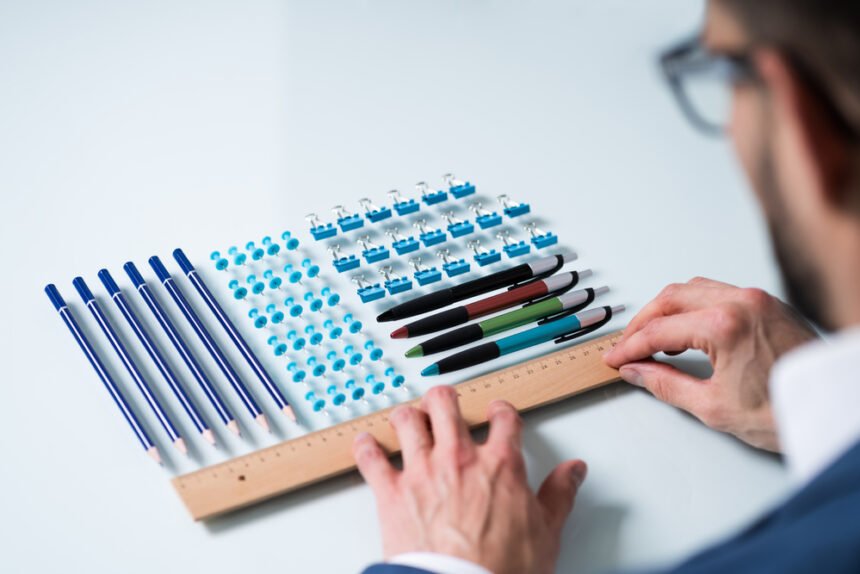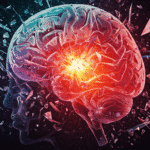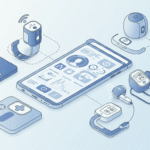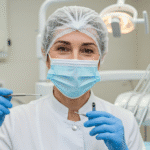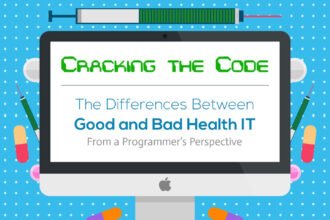Today we will learn about the latest technology in treating OCD, with a special focus on Deep Transcranial Magnetic Stimulation (Deep TMS). Discover how this non-invasive medical device utilizes magnetic fields to regulate the neural activity of specific brain structures associated with OCD.
Introduction
Obsessive-compulsive disorder (OCD) is a mental health disorder characterized by persistent, recurrent, and unwanted thoughts, ideas, or impulses (obsessions) that are often followed by repetitive behaviors or mental acts (compulsions) that the person feels driven to perform.
These obsessions and compulsions can take up a significant amount of time and can interfere with daily life. With severe OCD, individuals struggle to perform daily activities and maintain relationships. OCD interferes with personal, business, academic, and other activities. Some forms of OCD can also cause people to inflict harm on themselves. Therefore, it is a priority to treat this mental health disorder.
How Does OCD Differ from Other Mental Health Disorders?
An estimated 2.3% of the population has OCD. Sadly, it is still a heavily misunderstood mental illness.
First and foremost, a definitive diagnosis of OCD must be made. This is done using the Y-BOCS Test. The Yale-Brown Obsessive Compulsive Scale (Y-BOCS) is a 10-item questionnaire to assess the severity of OCD symptomatology.
- Y-BOCS scores range from 0 to 40, with higher scores indicating greater levels of symptom severity.
- The Y-BOCS consists of two parts: assessing obsessions and compulsions.
- Each item is rated on a five-point scale ranging from 0 (not present) to 4 (severe).
- After completing the questionnaire, clinicians use the ratings to assign a total score that reflects the overall severity of obsessive-compulsive disorder symptoms.
OCD is different from other mental health disorders in that both obsessions and compulsions characterize it, whereas other disorders may only involve one or the other. Additionally, other disorders, such as depression or anxiety disorder, may present with similar symptoms, but the compulsions seen in OCD are not present.
OCD Obsessions
Obsessions are unwanted and intrusive thoughts, images, or ideas that cause anxiety and distress. Examples include:
- Fear of losing control
- Intrusive sexual thoughts
- Fear of contamination or germs
- Unwanted aggressive or violent thoughts
- Uncontrollable need for order and symmetry
- Unwanted intrusive thoughts about taboo topics
- Preoccupation with superstitions or religious beliefs
- Excessive worry about causing harm to oneself or others
OCD Compulsions
Compulsions are repetitive behaviors or mental acts (such as counting or checking) that the person feels driven to perform to reduce anxiety or discomfort. Examples include:
- Excessive cleaning and washing
- Hoarding items that have no real value
- Seeking constant reassurance from others
- Counting, tapping, or repeating words silently
- Repeating tasks or actions a certain number of times
- Checking things repeatedly (e.g., checking door locks)
- Arranging and rearranging objects until it feels “right”
As with many other mental health disorders, there are comorbidities with OCD. These include related mental health disorders, including depression, anxiety, and tic disorders (such as Tourette’s Syndrome).
The Challenge: How to Treat OCD?
Treatment for OCD can be challenging as it often requires a combination of medication and therapy. Medications such as selective serotonin reuptake inhibitors (SSRIs) are often used to alleviate symptoms therapy, particularly cognitive-behavioral therapy (CBT), is also an important component of treatment. There are medications, therapy, surgical and non-surgical treatments for OCD.
Dramatic and unprecedented scientific advancements have facilitated a greater understanding of brain chemistry. Our ability to target treatments at specific brain areas allows us to develop novel treatments for OCD. Let’s assess how technology plays its part in the treatment process.
Using OCD Medical Devices to Treat this Mental Health Disorder
Deep Transcranial Magnetic Stimulation (Deep TMS™) is a noninvasive medical device that has been FDA-cleared for the treatment of Obsessive-Compulsive Disorder (OCD). This technology utilizes magnetic fields to regulate neural elements of specific brain structures linked to OCD, such as the anterior cingulate cortex.
The effectiveness of Deep TMS for treating OCD has been substantiated by clinical studies, including a multicenter study performed in 2019. This was published in the American Journal of Psychiatry (AJP). This research confirmed that the use of Deep TMS to regulate neural functionality of the medial prefrontal cortex & anterior cingulate cortex dramatically alleviated OCD symptoms.
Deep TMS is noninvasive and can be done in an outpatient setting. It’s a promising alternative for patients who have not found sufficient relief from medication and cognitive-behavioral therapy therapies.

